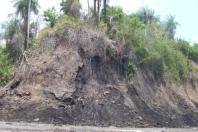IEA says further action is needed to diversify and strengthen Estonia energy supply
IEA - International Energy Agency : IEA says further action is needed to diversify and strengthen Estonia energy supply
Review of Estonia energy policies calls for measures to secure long-term energy supply, increased funding for energy efficiency activities and greater regional co-operation
20 September 2013
In a review of Estonian energy policies launched today, the International Energy Agency commended Estonia for its commitment to implement a new energy strategy by mid-2014, reforming energy markets, and expanding renewable energy sources and research and development efforts.
The IEA report noted that Estonia is unique among OECD countries in that its energy sector is dominated by one primary source, oil shale. Oil shale is an energy-rich rock - not to be confused with shale oil or tight oil - that provides Estonia with a high level of energy autonomy; oil shale can be burned to produce electricity and heat, and chemical processing can yield liquid oil and gas. However, the use of oil shale is carbon-dioxide intensive by nature and thus raises questions of long-term sustainability. A government priority is to reduce the carbon intensity of the energy sector, and to date these efforts have been very successful. Estonia's greenhouse-gas emissions have roughly halved since 1990, and recent energy policy measures have delivered strong results.
IEA Executive Director Maria van der Hoeven praised Estonia for its commitment to introducing measures aimed at reducing the direct combustion of oil shale for electricity generation and increasing production of liquid oil derived from oil shale. "These measures, if successfully implemented, will bring tangible economic benefits and diversify energy supply," she said.
The IEA report also noted that policies that strengthen energy security can be complemented by robust instruments to promote energy efficiency. "There is a need for greater continuity in support schemes and to move away from the present stop-start approach to funding programmes," she added.
The IEA also praised Estonia's success in expanding the share of renewable energy, notably wind and biomass, but pointed to the need for forward-looking and more stable renewable energy policy to allow the country to go beyond EU-driven obligations. Such a strategy would also bring about significant environmental benefits, strengthen energy security and reduce costs. Growth in renewable energy can also improve the balance of trade by freeing up domestic oil shale resources for export to new markets.
Since joining the European Union in 2004, Estonia has undertaken a significant programme of reforms in the electricity market: the electricity sector has been liberalised; Estonia is part of the wider Nord Pool wholesale market; a strong independent regulator is in place; and the transmission system operator is investing in new infrastructure to strengthen regional electricity supply.
Conversely, in the natural gas market, the country remains isolated from most of the European Union, sharing connections with only nearby Latvia and Russia, and it relies on one country for all its needs. A decision on a regional LNG terminal is outstanding, and a single privately-owned utility maintains a dominant position. The Executive Director cautioned that "the lack of a properly-functioning gas market poses a significant risk in terms of security of supply".
Closer integration with EU energy markets is an important policy goal for Estonia and, given the small size of the domestic energy sector, a regional solution is required. The IEA report urged Estonia to strengthen structural co-operation at a regional level and within existing European mechanisms, as well as with its neighbours in the east in order to enhance security of supply at reasonable cost.
Estonia applied for IEA membership in 2011, and the review of Estonia's energy policies is one part of the IEA accession process. The completion of the accession negotiation depends on the timely adoption of the amendments to the Liquid Fuel Stocks Act - currently in Estonia's Parliament for consideration - which includes provisions that will align Estonian legislation with IEA requirements.
http://www.4-traders.com/news/IEA-International-Energy-Agency--IEA-says-further-action-is-needed-to-diversify-and-strengthen-Es--17283231/


